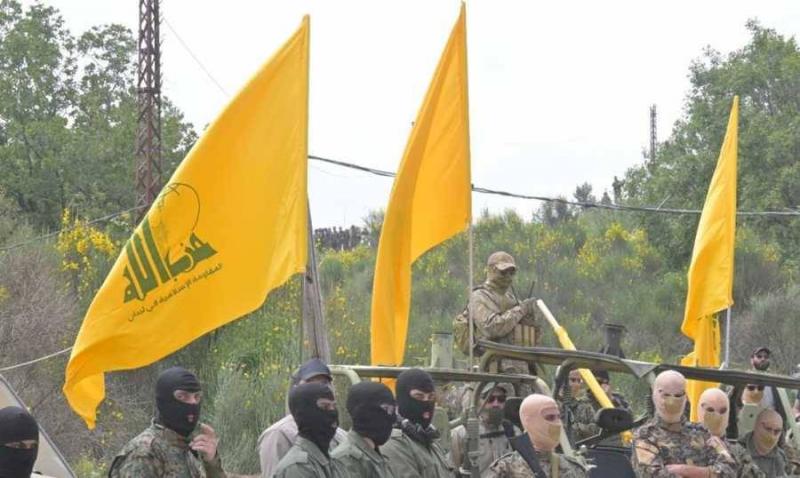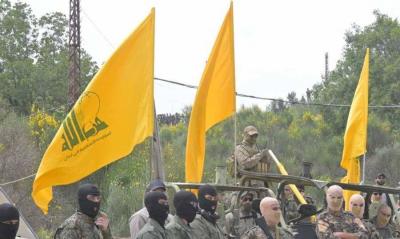So far, there are no indications of any progress in the negotiations to reach a settlement on the southern front. The final word still lies in the field, with the ongoing Israeli escalation and destructive bombardment in the villages, along with targeted strikes hitting areas far from the border. The rate of threats of a war against Lebanon has also risen, according to "An-Nahar." In contrast, Hezbollah's Secretary-General Hassan Nasrallah has heightened his threats to respond to Israeli attacks, asserting that there will be no negotiations before a ceasefire in Gaza.
Despite the intensifying tensions and confrontations, along with the stalemate in negotiations, international efforts, particularly from the U.S., are still underway, led by U.S. President's envoy Amos Hochstein, to reach a settlement that prevents war in the south. International contacts have intensified in light of the recent escalation on the southern front to prevent the situation from sliding into further armed confrontations between Hezbollah and Israeli forces.
Amid indications of a deadlock regarding mediation for calming the front and achieving stability and starting negotiations, especially with the regional negotiations between Iranians and Americans facing hurdles, the ceasefire in Gaza has also faltered, with Israeli threats of an incursion into Rafah. U.S. contacts with Parliament Speaker Nabih Berri occurred in parallel with the meeting between Hochstein and caretaker Prime Minister Najib Mikati in Munich, urging de-escalation and avoiding escalation. Lebanon was informed by the Americans, according to a diplomatic source, that efforts are ongoing, including pressures to prevent Israel from launching a large-scale war against Lebanon, but there is no guarantee that this would hold indefinitely if conditions on the front persist for an extended period.
However, American pressure on Israel to prevent it from expanding operations does not mean that Washington is convinced of the possibility of returning to the pre-October 7 status. Preventing war must be accompanied by a new settlement in which Hezbollah makes concessions that lead to implementing Resolution 1701. This is part of the project that Hochstein is carrying to stabilize the ceasefire and restore long-lasting stability in the region, drawing from the success of the U.S. administration in reaching a maritime border agreement between Lebanon and Israel, in which Hezbollah made concessions alongside regional deals in Iraq and Yemen.
However, reaching a settlement on the land border between Lebanon and Israel requires more than that, especially with the Gaza war which does not seem likely to cease from the Israeli side in the near future, according to "An-Nahar." Therefore, Hochstein is convinced that a settlement in southern Lebanon, or at least the initiation of actual negotiations, will only commence after a ceasefire in Gaza, a condition insisted upon by Hezbollah after linking the Lebanese front to Gaza.
Nonetheless, the U.S. envoy intensifies his contacts before returning to the region, in an attempt to calm the situation, even if the war in Gaza persists, and to achieve breakthroughs through his known agenda, starting with stopping confrontations and relocating residents back to villages in the south and Israeli settlements in the north, followed by the implementation of Resolution 1701, and then finally discussing the delineation of borders concurrently with Israel's withdrawal from disputed points that constitute a conflict between Lebanon and the occupation.
There are many details in these points, especially regarding Resolution 1701, its implementation, the issue of weapons, the role of the Lebanese army, and the arrangement of the military and security situation, details which do not seem to have Hezbollah's approval as of now.
As long as the war in Gaza continues, the southern Lebanon front will remain ignited; this equation has become established and complicates all mediations, including the American ones. Consequently, what emerged from the Hochstein-Mikati meeting and the former's statements to media is that Washington will continue to pressure to keep confrontations on the southern front at current levels and prevent their expansion. However, this situation may flare up due to certain calculations, especially in Israel, which appears internally prepared for war against Lebanon, yet cannot take it to the end without U.S. cover.
Thus, fears are rising regarding a major escalation, especially if the Gaza war drags on. Notably, international proposals concerning the southern front have successively failed, including what the French proposed regarding the possibility of expanding the April 1996 agreement after Israel's Grapes of Wrath war, aligning with Resolution 1701, as a prelude to de-escalation and addressing disputed points between Lebanon and Israel, along with Hezbollah withdrawing its fighters from the Litani area.
Hezbollah has been clear in its stance, even escalating in Nasrallah’s speeches, stating that international offers carry Israeli conditions, a message specifically aimed at the French. Meanwhile, Israel, through its escalation, either seeks to lure Hezbollah into expanding the war or continues to breach red lines to impose a new reality in the south.
Thus, only U.S. mediation remains in the field, with nations surrendering to its framework, as reflected in recent Israeli stances and discussions among Israeli war strategists, alongside threats against Lebanon. The Israeli newspaper "Yedioth Ahronoth" published an article emphasizing the importance of focusing on negotiations with the Americans to reach a solution to avoid escalation on the Lebanese front. It stated that if the war in Gaza continues for more months, a comprehensive war in Lebanon will certainly break out due to pressures from displaced people in northern Israel.
But convincing the United States to continue its support is essential. The outcome between diplomatic movement and field escalation indicates that matters on the front may not remain unchanged, amidst other messages reaching Lebanon indicating that Israel has decided on war, awaiting the right timing to launch it. Despite discussions in the internal front of the occupation, scenarios are emerging, leaked by Israelis, of a possible ground war accompanied by destruction reaching deep into Lebanon, aiming to occupy a border area and isolate it in the south.
Hezbollah's response came swiftly through Nasrallah, confirming that it will be prepared for Israeli escalation and that operations will not cease. Yet, while Nasrallah asserts that the party's role is deterrent, he compels the Lebanese state to concede to its aims, even if some of its goals are not Lebanese, including demands for raising the ceiling of conditions beyond Resolution 1701. It is worth noting that what Hochstein proposes is a comprehensive negotiation agenda. Thus, Hezbollah firmly ties the front to Gaza and attempts to establish a certain balance, yet simultaneously opens up significant Lebanese possibilities, mainly that Hezbollah determines the fate of the country without considering the overall Lebanese situation, presenting itself as the principal negotiator. Consequently, any settlement will only pass under its conditions, even if matters roll into a comprehensive war that devastates Lebanon.




